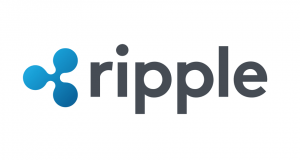In 2009 Satoshi Nakamoto, the alias of an individual or an unknown group of programmers, introduced a new monetary concept based on a direct peer-to-peer model of electronic cash payments through the currency called bitcoin. To help beginners understand Bitcoin and how it works, here is a list of basic terminologies and their definitions. The terminologies are presented through a schematic flow of one online transaction.
- Cryptocurrency: digital currency using cryptography to secure the payment process. Cryptocurrencies normally use the public-keys systems of having both the public key and the private key data for every transaction. Bitcoin is the first cryptocurrency.
- Bitcoin: a digital cash peer-to-peer (P2P) payment system that avoids going through a middleman. It is a wholly decentralized consensus network. Bitcoin also refers to the unit of cryptocurrency used to pay for goods and services purchased globally through the Internet. Merchants who accept bitcoin (bitcoin spelled with lower-case “b” refers to the cryptocurrency unit) as payment for their goods and services follow the current market value exchange rate estimates of bitcoin to their local currency.
- P2P: peer-to-peer payment system where the bitcoin payment of goods and services are transacted directly between buyer and seller without any third party middleman like a financial institution or clearing house. This speeds up the transaction and avoids excessive payment processing fees.
- Bitcoin wallet: a software program downloaded to a device (e.g. personal computer, smartphone) where bitcoins are stored. All bitcoin transactions (sending or receiving bitcoins) are made through the Bitcoin wallet.
- Private key: a string of data that is kept secret and known only to the owner of the Bitcoin wallet. In a transaction, the private key authenticates the owner of the bitcoins to be spent. Entering the private key allows the owner of the Bitcoin wallet to spend and send out bitcoins.
- Public key: a string of data known to others that allow a Bitcoin wallet to receive bitcoins. Both the private and public keys complete one transaction.
- Miners: people who run specialized computer hardware like the ASICs (Application Specific Integrated Circuits) working to verify blocks of Bitcoin transactions and unlock new bitcoins through solving math problems. They earn bitcoins through transaction fees verified and through rewards for every bitcoin released.
Bitcoin is transforming the concept of money and transactions in this digital age. As the currency matures, expect the emergence of more innovative and creative ideas to operate within the Bitcoin network.











